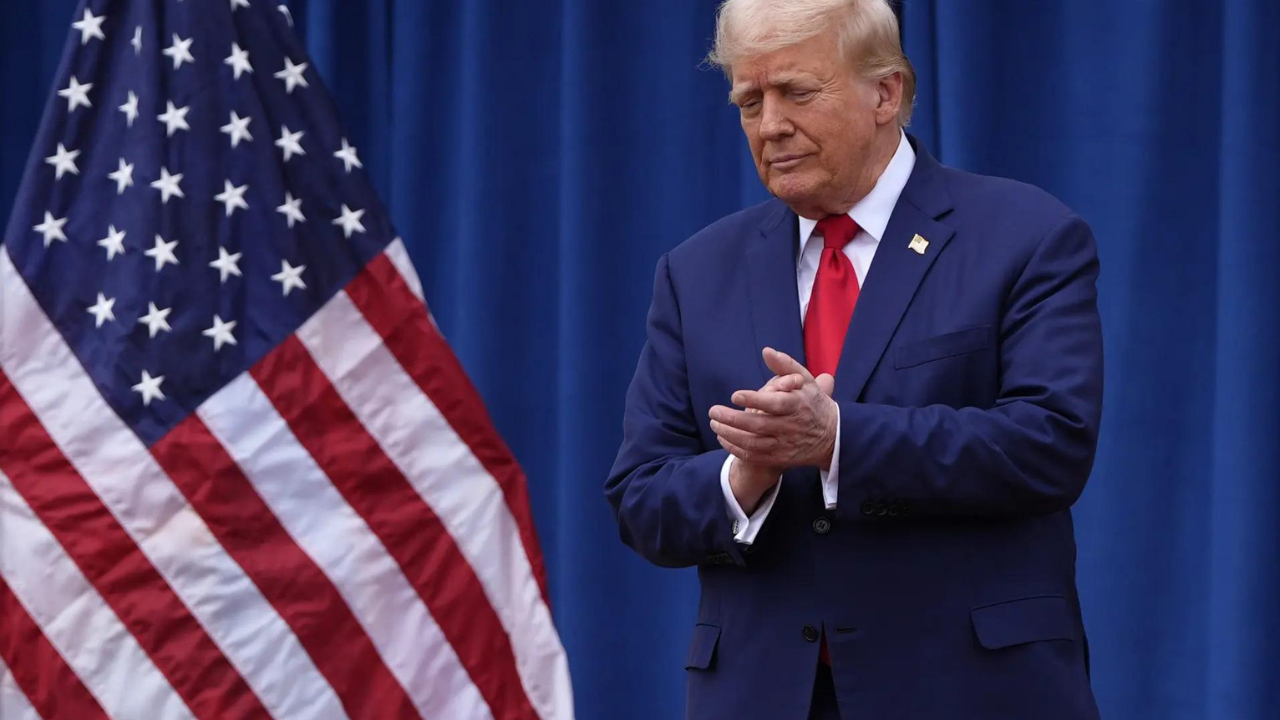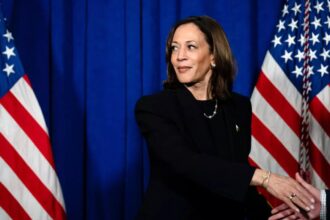Donald Trump, though not present in Chicago, has a noticeable influence on the Democratic National Convention (DNC) events taking place there. Despite his aides’ claims that he isn’t interested in watching the DNC, a senior campaign official confirmed that the former president is indeed following the events and is irritated by the attacks against him, the BBC reported.
While Trump’s campaign strategy initially aimed to focus on the economy, the border, and crime through a series of rallies, nightly anti-Trump speeches at the DNC have made it challenging for him to stay on message, with his campaign now seemingly directed by crowd reactions and his own impulses.
Rallies and reactions: A shift in strategy
Trump has scheduled rallies in Pennsylvania, Michigan, North Carolina, and Arizona, each aiming to highlight political and economic topics. However, consistent personal attacks against him during the DNC have led him to ask his supporters whether he should remain policy-focused or respond to the attacks. At a rally in North Carolina, Trump addressed the issue directly with his audience.
“They always say, ‘Sir, please stick to policy, don’t get personal’… and yet [the Democrats are] getting personal all night long, these people. Do I still have to stick to policy?” Trump asked. His supporters responded enthusiastically for him to go personal, to which he joked, “My advisers are fired!” He then indicated his intent to focus on policy but also not overlook the attacks.
Advisers’ concerns over personal attacks
This approach is causing concern for his campaign advisers who wish for Trump to focus on policy issues rather than engaging in controversial personal attacks. One adviser, speaking anonymously, mentioned that their primary challenge is keeping Trump concentrated on policy issues and away from personal controversies.
“It doesn’t matter what he talks about for 45 minutes,” the adviser said. “One comment or answer to a question gives the left all they need to change the subject.”
Controversy overshadows policy
Trump’s tendencies to deviate into personal attacks were visible when he criticised Democratic Pennsylvania Governor Josh Shapiro on social media late Wednesday night after Shapiro’s speech at the DNC.
“The highly overrated Jewish Governor of the Great Commonwealth of Pennsylvania, Josh Shapiro, made a really bad and poorly delivered speech,” Trump wrote. “I have done more for Israel than any President…Shapiro has done nothing for Israel, and never will.”
The inclusion of Shapiro’s religious background drew attention and was highlighted by US morning shows as a racial dog whistle. Similar sentiments emerged after the Obamas criticised Trump at the DNC. At his North Carolina rally, Trump made a pointed response.
“Did you see Barack Hussein Obama last night?” Trump said. “He was taking shots at your president. And so was Michelle.”
The usage of Obama’s middle name, “Hussein,” is often interpreted as an attempt to provoke racial animosity. Such instances of racial innuendo complicate the efforts of Trump’s campaign advisers, who find that controversy tends to overshadow substantive policy discussions.
With Trump’s campaign strategy appearing to fluctuate based on crowd responses and the personal attacks flying at the DNC, his advisers are left grappling with a candidate who thrives on controversy. This presents an ongoing challenge to maintain a consistent focus on policy and attacking his opponent’s weaknesses rather than personal back-and-forths.
While Trump’s campaign strategy initially aimed to focus on the economy, the border, and crime through a series of rallies, nightly anti-Trump speeches at the DNC have made it challenging for him to stay on message, with his campaign now seemingly directed by crowd reactions and his own impulses.
Rallies and reactions: A shift in strategy
Trump has scheduled rallies in Pennsylvania, Michigan, North Carolina, and Arizona, each aiming to highlight political and economic topics. However, consistent personal attacks against him during the DNC have led him to ask his supporters whether he should remain policy-focused or respond to the attacks. At a rally in North Carolina, Trump addressed the issue directly with his audience.
“They always say, ‘Sir, please stick to policy, don’t get personal’… and yet [the Democrats are] getting personal all night long, these people. Do I still have to stick to policy?” Trump asked. His supporters responded enthusiastically for him to go personal, to which he joked, “My advisers are fired!” He then indicated his intent to focus on policy but also not overlook the attacks.
Advisers’ concerns over personal attacks
This approach is causing concern for his campaign advisers who wish for Trump to focus on policy issues rather than engaging in controversial personal attacks. One adviser, speaking anonymously, mentioned that their primary challenge is keeping Trump concentrated on policy issues and away from personal controversies.
“It doesn’t matter what he talks about for 45 minutes,” the adviser said. “One comment or answer to a question gives the left all they need to change the subject.”
Controversy overshadows policy
Trump’s tendencies to deviate into personal attacks were visible when he criticised Democratic Pennsylvania Governor Josh Shapiro on social media late Wednesday night after Shapiro’s speech at the DNC.
“The highly overrated Jewish Governor of the Great Commonwealth of Pennsylvania, Josh Shapiro, made a really bad and poorly delivered speech,” Trump wrote. “I have done more for Israel than any President…Shapiro has done nothing for Israel, and never will.”
The inclusion of Shapiro’s religious background drew attention and was highlighted by US morning shows as a racial dog whistle. Similar sentiments emerged after the Obamas criticised Trump at the DNC. At his North Carolina rally, Trump made a pointed response.
“Did you see Barack Hussein Obama last night?” Trump said. “He was taking shots at your president. And so was Michelle.”
The usage of Obama’s middle name, “Hussein,” is often interpreted as an attempt to provoke racial animosity. Such instances of racial innuendo complicate the efforts of Trump’s campaign advisers, who find that controversy tends to overshadow substantive policy discussions.
With Trump’s campaign strategy appearing to fluctuate based on crowd responses and the personal attacks flying at the DNC, his advisers are left grappling with a candidate who thrives on controversy. This presents an ongoing challenge to maintain a consistent focus on policy and attacking his opponent’s weaknesses rather than personal back-and-forths.
Source : Times of India









